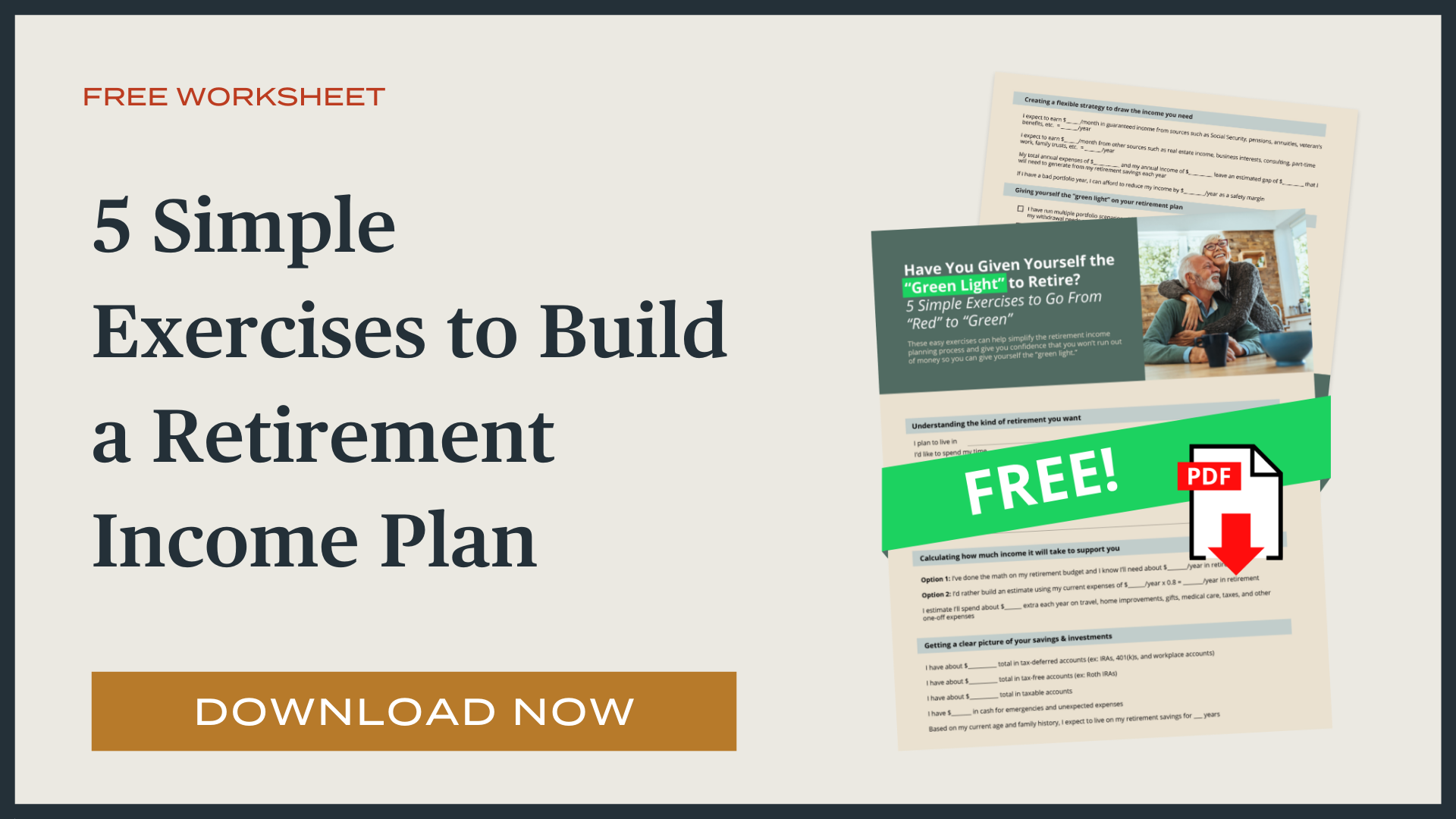One of the biggest obstacles faced by those nearing retirement is knowing whether they are financially ready to retire.
Often, the reason for this is because they do not have a clear understanding of their desired retirement lifestyle and how their nest egg should work to support it.
The 5 steps below will help you decide if you’re ready to retire. Let’s get started!
Visualize your retirement lifestyle
To determine if you’re financially ready to retire, you must first understand your desired retirement lifestyle.
As Oscar Hammerstein II once said, “If you don’t have a dream, how you gonna make a dream come true?”
Visualize your dream retirement by answering questions like:
- Where do you plan to live? Will your home be paid off or will you have a mortgage? Do you plan to undertake home renovations? If you downsize to an apartment, what will you pay in rent?
- How do you want to spend your time? Do you dream of traveling? If so, what expenses are associated with your travels? Will you spend more time/money spoiling grandchildren? Do you have a hobby that requires you to purchase new gear?
- What do you want a typical day in the life look like? How often will you eat out? What activities will fill your time? Will you need cable or internet in your day-to-day life?
- What big-ticket expenses will you buy in retirement? Do you plan on buying your dream car? Finally taking that 2-week tour of Italy? Sending a grandchild to college? Paying for a wedding?
- How will you pay for healthcare? It’s wiser to plan for healthcare and long-term care expenses than to hope you’ll luck out.
Calculate how much income it will take to support you
Now that you have clarity surrounding your retirement lifestyle, it’s time to calculate an annual budget.
You can do this in one of two ways:
- Revisit your visualization exercise from step one and build an estimated annual budget based on each facet of your lifestyle.
- Build an estimate based on 80% of your current annual expenses.
Though option 2 can be a good rule of thumb, not all retirees spend less in retirement. If your goals include big-ticket purchases like travel, home renovations, or dream cars, you may put yourself at risk for spending the same— or more— as you did while working.
Get a clear picture of your retirement income
Next, take a look at your various sources of income in retirement.
Guaranteed Income
Know how much you expect to earn from guaranteed income sources, such as:
- Social Security
- Pension
- Annuities
- Veteran’s Benefits
Other Sources
Know how much you expect to earn from other sources, such as:
- Real Estate
- Part-Time Work
- Consulting
- Inheritances
Create an income plan
You might be asking yourself, “What is an income plan?” It’s a strategy for withdrawing income from your various retirement accounts to close your income gap.
Calculate Your Income Gap
Your income gap is the difference between your expenses and income in retirement.
This number, along with the help of your portfolio value, will dictate the structure of your retirement income and withdrawal plan.
Know Your Portfolio
These accounts make up your nest egg:
- Tax-Deferred (IRAs,401(k)s, 403(b)s, TSPs)
- Tax-Free (Roth IRAs, Roth 401(k)s)
- Taxable (Checking Account, Savings Account)
- Emergency Fund
Develop a Strategy
Devise a plan to close your income gap through strategic portfolio withdrawals.
This step can feel overwhelming. Don’t be afraid to reach out to a trusted financial advisor to help you develop a strategy.
Do I Need an Income Plan?
Want to know a great recipe for running out of money? Picking away at your savings every month as you need it.
An income plan takes the guesswork out of affording retirement. It gives you the freedom to spend (within calculated limits) and the confidence to know you won’t run out of money.
Test Your Plan
To ensure your plan’s success, it’s wise to run it through several tests before implementation.
There are many added factors to consider when testing your plan, including:
- Growth and inflation assumptions
- Your portfolio’s risk tolerance
- Tax-smart withdrawal strategies
- Volatile market conditions
- When to file for Social Security and Medicare
Am I Financially Ready to Retire?
If you’ve built an income plan, you’re confident that your retirement income will exceed your expenses, and your plan tested positive for success, then congratulations! You may be financially ready to retire.
If you don’t feel quite ready to retire, don’t worry. It’s okay not to have all the answers right now. With time and more planning, you’ll get there.
Don’t be afraid to reach out for help if you need it. We can help you make your retirement dream a reality.



